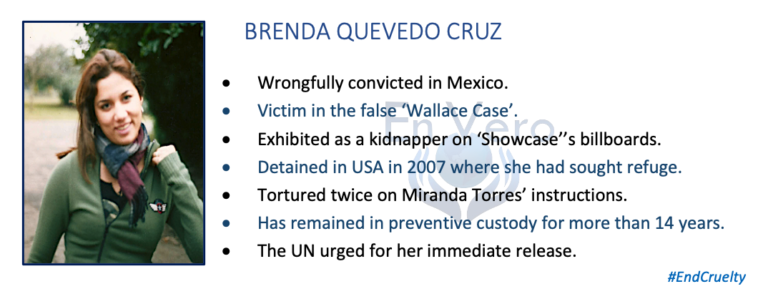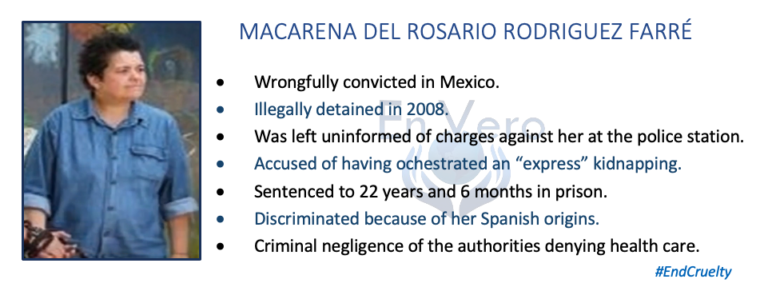Source: Droit Inc.
Author: Delphine Jung
September 24, 2017 (Original publication in French on June 1, 2017)
Translation: Guy Simard
For the past two years, a Montreal-based attorney has been helping a woman from Quebec who was sentenced to 28 years in prison for the murder of her husband.
Since 2008, Judith Brassard is incarcerated at Santa Marta prison, in Colombia, for allegedly murdering her husband, native from the country. Convinced she is being framed, she asserts her innocence since the very beginning.
“This story moved me from the start. I knew something needed to be done”, recalls Colombian attorney Mabel Gonzalez, who moved to Montreal four years ago.
Mabel Gonzalez contacted En Vero, formerly known as the Canadian Association for Rights and Truth, after she saw the news report about the mother being sentenced to 28 years in prison. En Vero specializes in defending the rights of innocent people who have been wrongfully convicted, and relies on volunteer lawyers such as Mabel Gonzalez.
According to Gonzalez, she got involved because “CEO David Bertet was actually looking for Spanish-speaking volunteers, more specifically someone who could take on Judith’s case.” To her, it was the normal thing to do.
With a law degree from Colombia, and a Masters in international law from Spain, Mabel Gonzalez has always worn her heart on her sleeve. Though surrounded by civil war and the bloody battle against drug lord Pablo Escobar, this child of two lawyers helped less fortunate children and sang in a peace quire.
“Human rights have always fascinated me, and becoming a lawyer seemed like a good way to satisfy my desire to help people.”
In Quebec since 2013, she now works for a sustainable-development company. Not only does she care for her two young daughters, but she also devotes an average of 6 hours per week to Judith Brassard’s case, which amounts to a file of over 6000 pages.
“We’re working with her lawyer in Colombia. We’re going over all the testimonials to find new evidence. We’re trying to build a solid foundation to reopen this case”, she explained.
Mabel Gonzalez, who feels diplomatic authorities are more open to the organism’s message, has noticed the affaire is getting at least a little attention from Canadian authorities, more so than during the Harper government.
A complicated case
The Quebecker’s case is quite complicated. According to Ms Gomez, “Felipe Rojas’s (Judith’s former husband, ed.) family is well-known in Colombia. His relatives are business people and politicians, they are a very rich and powerful family.”
The Rojas family is accusing Brassard of ordering the hit on Felipe. However, Gonzalez has said that no evidence supports any communication between Brassard and the murderers, and she feels as though Brassard was set up.
In fact, an alleged middleman has recently changed his version of the story, now stating that he had never been in contact with the Canadian citizen.
“Yet the judge chose not to believe him, despite weak, if not lacking evidence. In Colombia, this makes way for theories of corruption. Justice is an important part of society. If we cannot count on judges or institutions, we’re likely to take matters into our own hands. That’s how things work in Colombia”, bemoans the attorney, who nonetheless dreams of one day moving back to “her country”.
She caringly adds: “I hope Felipe’s family sees that we’re not against them. We simply think Judith wasn’t rightfully judged. We want to find the real culprits.”
One thing is certain, Mabel Gonzalez is unwilling to give up: “I cannot rest easy knowing that a woman like Judith is in prison. I will not stop until justice has been rightfully served.”
![]()




